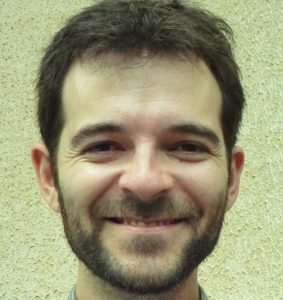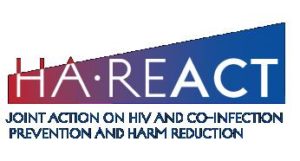
Here’s my interview with Luis Sordo del Castillo, Spanish medical doctor, field epidemiologist and specialist in Public Health. In addition to serving as steering committee member of HA-REACT and work package lead for “Scaling up harm reduction”, he is a researcher in the Substance Abuse Research Group, National Centre of Epidemiology, Madrid, Spain and an Assistant Professor at the Division of Public Health (Complutense University, Spain).
What influenced your decision to become involved with the newly formed Joint Action on HIV and Co-Infection Prevention and Harm Reduction (HA-REACT)?
Although I studied medicine, in my everyday position I am primarily a researcher working in front of (or behind) a computer. I mainly work with databases and technical issues. Though what we do in health research is more than necessary, sometimes my work can feel far away from the results.
I am working every day with people around Europe who heavily impact the health and lives of our primary population, people who inject drugs (PWID).
The exciting part of participating in the HA-REACT Joint Action is that it is not simply detached research. This is about action. In my role in HA-REACT I am still not in front of the patients themselves, but I am working every day with people around Europe who heavily impact the health and lives of our primary population, people who inject drugs (PWID).
How do you see your role as lead on the “Scaling up harm reduction” work package?
I think Spain is an important place from which to coordinate this ”Scaling up harm reduction”. From 1985-2006, we in Spain had one of the worst European experiences with the HIV and heroin epidemics, and we had to react. More than 300,000 people were treated for heroin dependence between 1985 and 2005; 20,000-25,000 people died from overdose and 100,000 people were estimated to have become infected with HIV through drug injection, while estimates of viral hepatitis infection were even higher.
Some of these catastrophic epidemiological consequences can certainly be attributed to the delay in the implementation of effective interventions, such as opioid substitution therapy (see this article: “Lessons from the history of the human immunodeficiency virus/acquired immunodeficiency syndrome epidemic among Spanish drug injectors”). Today harm reduction is widely available and accepted in our society. If that learning curve was possible to overcome in Spain, I think it could also happen in any other European country.
From your perspective, why focus on HIV, TB and viral hepatitis in Europe?
There are specific gaps in prevention and the approach to these infections, which could be resolved. Harm reduction is an important example of these gaps.
We are approaching these diseases from a public health perspective, and HIV, TB and viral hepatitis are three of the most prevalent and harmful infections in Europe. There are specific gaps in prevention and the approach to these infections, which could be resolved. Harm reduction is an important example of these gaps. Besides, we are talking about a vulnerable population which is disproportionately impacted. They deserve our help.
What can we expect as a result of your HA-REACT work?

As other members of the Joint Action have explained, we want to impact the knowledge, acceptance and coverage of harm reduction strategies. We would like to see this lead to a reduction in rates of HIV, viral hepatitis and TB across Europe and specifically in our primary focus countries, in the case of WP5 these are Latvia and Lithuania.
What does the project hope to achieve over the next 3 years?
We hope to achieve specific results, gain experience and gather data and examples to keep in mind. We’d like to contribute to the creation of a European Network focused on co-infection prevention and harm reduction of HIV and infectious disease. The goal is to create real impact on a political level and indeed I am optimistic; I have already seen changes.
The Joint Action aims to contribute to the elimination of HIV and reduction of TB and viral hepatitis among PWID in the EU by 2020 and focuses on member states with gaps in effective and evidence-informed interventions. The project also encourages the implementation of comprehensive harm reduction programs in all EU member states as an essential strategy for improving the prevention and treatment of HIV, TB and viral hepatitis. Further information about HA-REACT is available at: www.hareact.eu
Hepatology, Medicine and Policy is now accepting submissions on this and related issues. For more information, visit: www.hmap.biomedcentral.com.
Comments